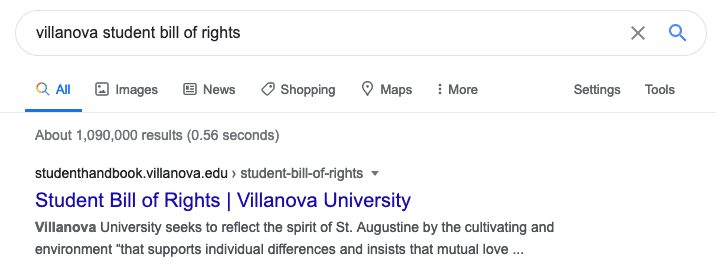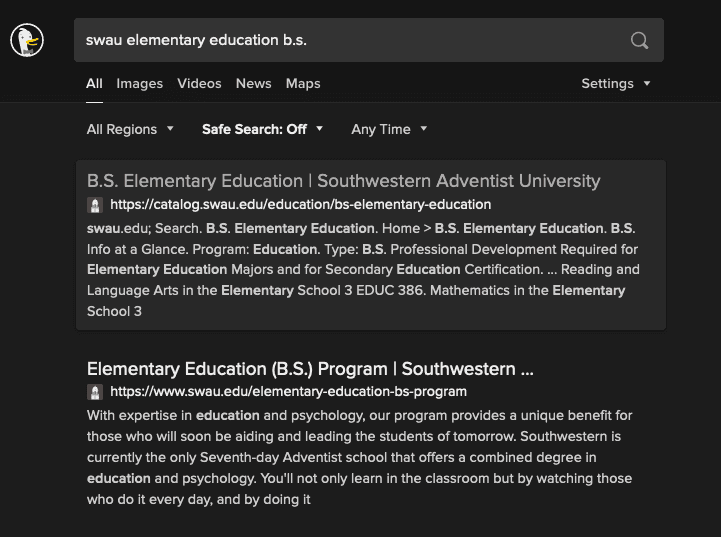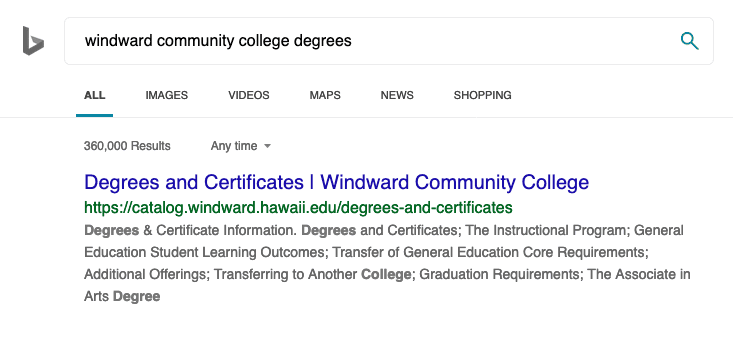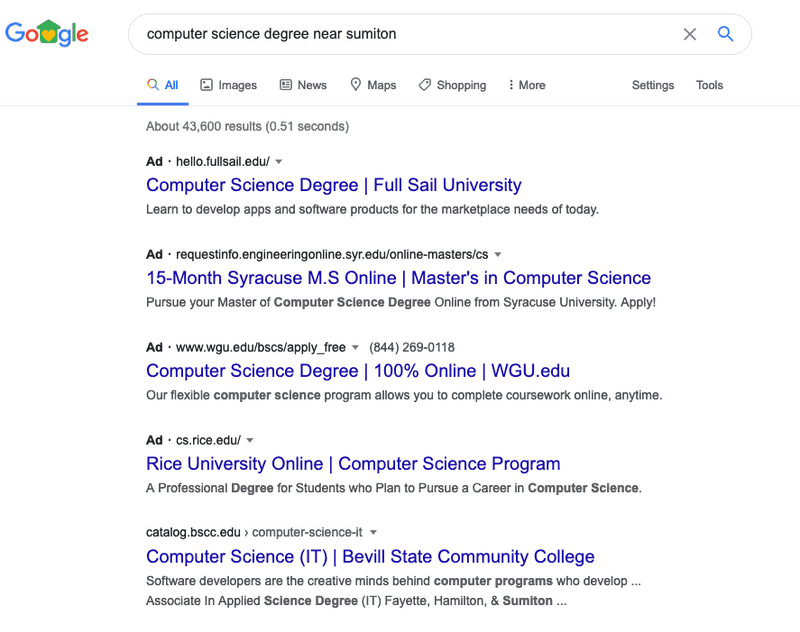The Importance of Seo for Course Catalog Software
May 6, 2020
Last updated: October 16, 2020
On average, roughly 42% of the visitors to your course catalog will come from a search engine. Ensuring that your catalog is search-friendly can make it much easier for people to find what they're looking for.
Search engine optimization — usually known as SEO — is often thought of as something for online retail or other industries where high search rankings. But having a search-optimized catalog can make it easier for students and potential students to access information for what your college offers — and find you if they're casually browsing education options.
The Data
According to our data — measured Feb. 1-April 30, 2020 — an average of 41.9% of visitors to college catalogs came via search. For some catalogs, that number was as high as 66.8%, and the lowest result was 22.2%. (The majority of the rest of the traffic typically comes from direct links from the college or university website.)
This means that, frequently, to find detailed information about your college like course descriptions and degree requirements students are going through Google instead of navigating through the main college website. For example, a student might Google something like "windward community college acc 201." If your catalog is a PDF or a non-optimized catalog, that information won't show up on search results.
Google searches account for more than 90% of the search results, with Bing at roughly 7% and Yahoo at the last 3%. But if your catalog is optimized for search, it will typically perform well across search engines.
Want to learn more about how people use course catalog software? We've created a whitepaper with in-depth analytics — what pages they tend to visit, what devices and browsers they use, and what features people want. Download it here.
What Seo for Course Catalog Software Looks Like
Here are a few samples of specific results you can get by optimizing your course catalog for search engines.
Search Results for Specific Info
If a student were to Google "Villanova Student Bill of Rights," they'd probably get something like this for the first result, from Villanova's Student Handbook built on Clean Catalog.

Likewise, if a student or potential student is looking for info for a specific degree, an optimized page will usually rise to the top of search results, no matter what search engine they're using (Duck Duck Go is pictured).

Search Results for General Info
If someone is searching for general info about your institution — like a list of what degrees are offered — Clean Catalog pages can be among the top search results.

Search Results for Potential Students
An optimized catalog can also help you get results for people looking for programs, potentially helping you bring in new students. See below for a sample of someone searching for a computer science program in their area — Bevill State Community College's catalog gets the valuable first spot (after the ads).

Pro Seo Tip
Ensure that your main campus website is Seo-optimized as well. It's going to have a lot of content — like admissions information — that won't necessarily be in your catalog.
